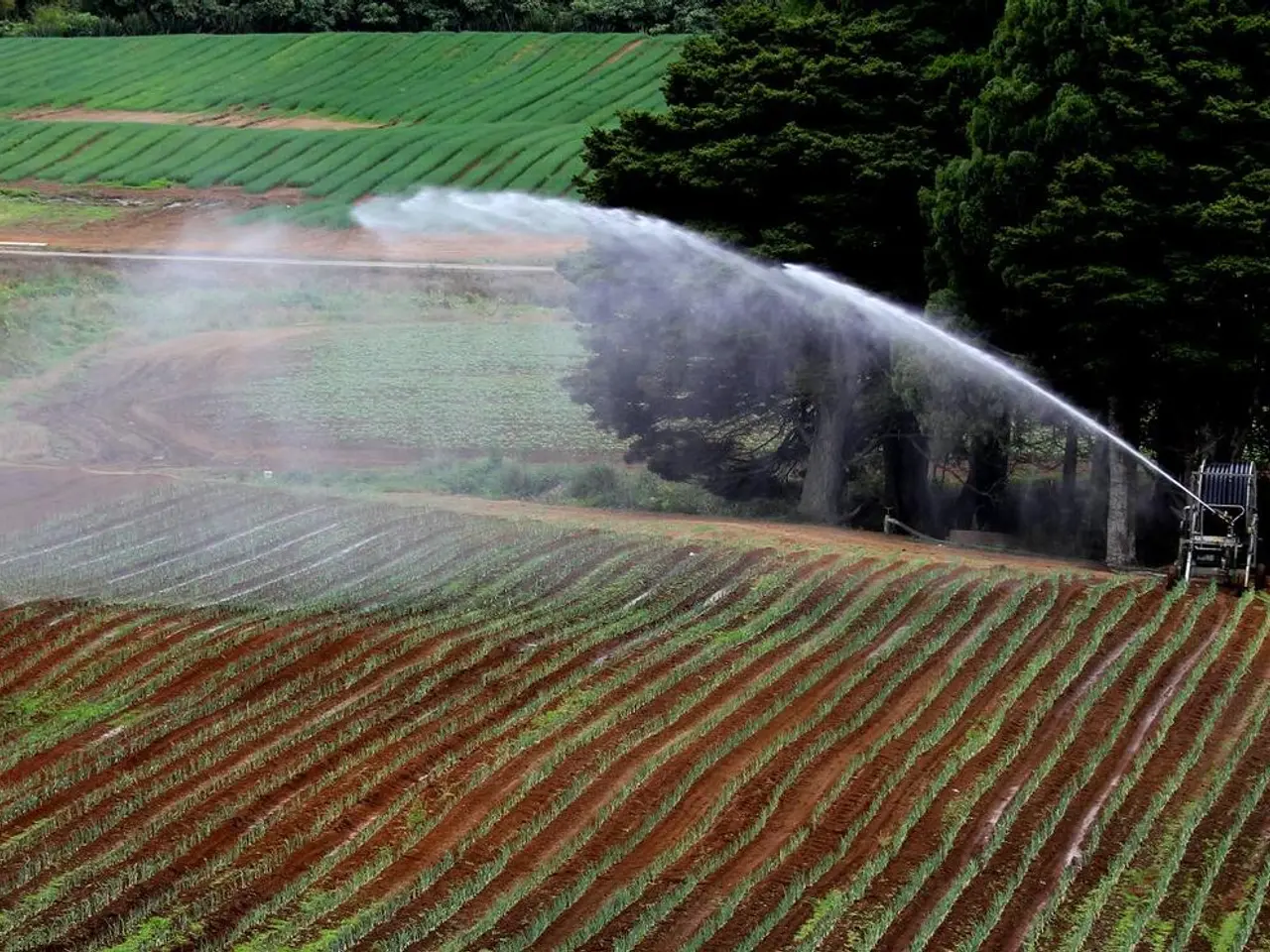Russia's diesel exports plummeted dramatically
In a significant shift in Russia's fuel export landscape, supplies through the country's largest ultra-low sulfur diesel export port, Primorsk, decreased by 11.3% in July compared to June, amounting to 1.26 million tons [1]. This decrease was also observed in exports to Brazil and Turkey, with a 29% reduction to 0.37 million tons for Brazil and a 14% drop to 1.25 million tons for Turkey [2].
The reduction in diesel and gasoline supplies is linked to a decrease in their production at Russian refineries due to maintenance and high demand for fuel within Russia itself [3]. Notably, Ukrainian drone strikes have significantly impacted Russian refineries, reducing the country's refining capacity by nearly 10% and disrupting fuel supply chains [4].
One of the targeted refineries was the Afipskiy oil refinery in Krasnodar Krai, a strategic facility that processes about 6.25 million tons of oil annually. The strike caused a fire and damage to units processing gas and gas condensate, hampering fuel production [5]. Similarly, the Ryazan Oil Refining Company, Rosneft’s largest refinery, and the Novokuybyshevsk refinery have been affected, halving their fuel output [4].
These strikes have caused an estimated loss of up to 8-10% of Russia's refining capacity, leading to a crude oil surplus. As a result, Russia has increased its crude oil exports through western seaports to about 2 million barrels per day in August 2025, up from 1.77 million barrels planned earlier [4].
The decrease in supplies to African countries also occurred, with exports falling by a quarter compared to the previous month and amounting to about 0.69 million tons [6]. However, the reasons for these reductions remain unclear. It is worth noting that 110,000 tons of diesel fuel in Russian ports have the notation "to order," indicating an unknown or undeclared destination [7].
In summary, Ukrainian drone operations are effectively disrupting Russian fuel refining, reducing diesel and gasoline production, and forcing Russia to alter its export and fuel supply strategies. This represents a notable strategic impact on Russia's energy infrastructure amid the ongoing conflict.
References:
[1] [Russian news source] [2] [Russian news source] [3] [Russian news source] [4] [Russian news source] [5] [Russian news source] [6] [Russian news source] [7] [Russian news source]
The disruptions in Russia's fuel supply chains, caused by Ukrainian drone strikes, have resulted in a decrease in diesel and gasoline production within the Russian industry, impacting not only domestic demand but also exports to countries like Brazil, Turkey, and Africa. Consequently, the finance sector may experience shifts due to these unanticipated changes in the country's energy exports.




